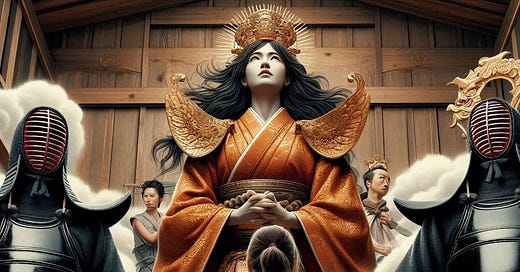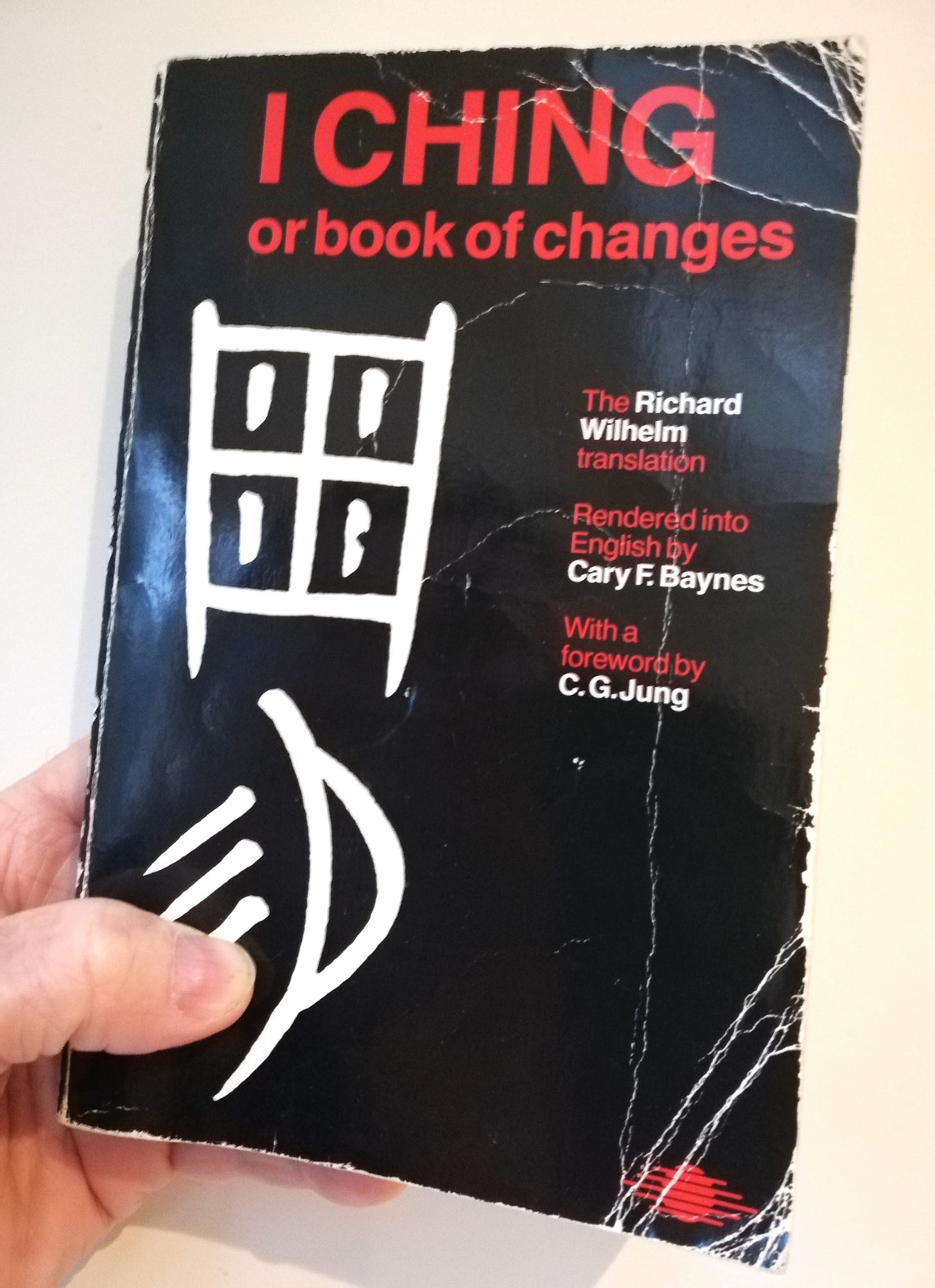Gods, Kami and miraculous happenings. Part 1.
Is there any space in the martial arts for the supernatural?
To ask a question like that you have to be clear about what you are talking about.
Define your terms.
The right words are always helpful. Unfortunately, the words ‘supernatural’ and ‘paranormal’ are often used as if they are the same thing. But, to be picky, each has a specific meaning.
The general acceptance is that ‘Supernatural’ means, phenomena that are completely beyond what we think are natural laws, and, as such tend to be linked to religious experiences, gods and deities.
While ‘paranormal’ describes events that are beyond the reach of current scientific understanding, but with further research could possibly be explained away.
The suggestion is that supernatural events tend to escape the scrutiny of rational scientific thinking, while paranormal phenomena are just begging to be solved.
The power of science.
Given that scientific understanding is moving forward at an alarming rate, and the laws of nature are not fixed in the way we would like to think they are, then the SUPERnatural and the PARAnormal lose some of their spooky credentials.
Science starts from the position of NOT knowing, and then puts forward theories to be tested, this is the strength of the scientific method.
But…
Never say never.
To assume that we have all the answers to everything that happens in the world is misguided and even arrogant. The reality is that the sum of everything you don’t know is infinitely greater than the tiny insignificant measure of stuff you do know.
We are limited by two factors; the first being the current accepted understanding of phenomena as we experience them, and the second; how partial our own sensory experience of the world is, and how the brain is designed to interpret the information input (and, for all its cleverness, in that respect, it’s pretty clunky).
What did the smartest people who ever lived have to say on the subject?
On the theme of gods, deities and otherworldly beings, Nietzsche didn’t muck about when he said that ‘God is dead’, and even theological heavyweights always gave themselves wiggle room when they found themselves defending the indefensible, often because they like to be seen as certain and uncertain at the same time. However, they are usually piggybacking on the ideas of the ancient pre-Christian philosophers.
And, the martial arts?
But, to keep this anchored in the martial arts world I will swiftly segue to Confucius; poster boy for martial arts-linked philosophy. He basically said you should, ‘pay your respects to your gods and buddhas, but don’t rely on them’.
He was also big on ritual, as the glue that holds society together (humans are hard-wired to embrace and celebrate life’s milestones).
And here we have a clue as to the relevance of the supernatural within some martial arts.
Ritual is a big deal in traditional martial arts. Specifically in Japanese martial arts, the protocols and observances are wrapped in something called ‘Reigi’ which can very simply be translated as ‘etiquette’ and covers the smallest of interactions to the largest issues of respect and courtesy. Sadly, modern sports have had most of these very civilised factors stripped out of them.
Ritual also encourages reverence and should be engaged with respectfully and with appropriate seriousness. Without this it all becomes a hollowed-out sham. Although you can engage in ritual and protocol on your own, it has value in its performative nature, and when groups of people come together it has the effect of bonding them in solidarity and reinforcing a tradition.
The magic of divination.
Probably the ritual/act that embodies the most far-fetched supernatural engagement of all is divination, or ‘fortune telling’. But read Carl Gustav Jung’s foreword to the Richard Wilhelm translated Chinese divination book the I Ching, and I guarantee you’ll come away thinking, ‘Yep, that makes sense, I can buy into that’.
In a nutshell, Jung proposed that going through the complicated process of divination through the I Ching and reading the ‘outcomes’ taps into the deeper hidden recesses of your brain and brings forth long-buried connections that wouldn’t have occurred through the normal thought processes. His view is that we carry our own wisdom around with us, no need for external agencies, it’s just learning to turn on the valve.
My own copy of the I Ching.
And this brings forth another potentially valuable use for the hidden aspects of seemingly paranormal ideas.
Here’s where the supernatural entities come into the martial arts.
‘And Man created God in his own image’.
In some older Japanese martial arts deities, gods and Bodhisattvas become closely associated with a particular Ryu.
Shrines and temples almost literally become ‘homes’ for the Ryu and within the ‘homes’ exist the smaller ‘homes’ in the form of the Honden, where the Kami (Spirits) are said to reside (please bear with me, this is a very simplified explanation for the sake of brevity). The heart of the shrines (including the Honden) act as a focal point, to intensify the feelings of reverence and sanctity.
(In a home or domestic setting, including a Dojo, the smaller version is the Kamidana, or ‘God/Spirit shelf’).
As a thinking species, we are very good at projecting our very human qualities onto our gods (particularly in polytheism, as opposed to monotheism) Think of the anger of Zeus, or the chaos and drunkenness of Bacchus/Dionysus.
For entities associated with the older Japanese martial arts, it could be said that individual spirits/gods become the embodiment of a set of characteristics; condensed versions of abstract qualities that become totemic to martial artists.
The very thought of them evokes and emboldens, it ignites a fire within the martial artist that can be used to supercharge their intent and determination, or bring forth a keen focus on other qualities seen as desirable.
An example; Kwannon, a bodhisattva (Buddhist saint) is the goddess of mercy and compassion. She is an embodiment of those qualities, and meditating/focussing on the purity of her identifying characteristics causes the individual to change their vision and take stock of their situation.
Likewise; Hachiman is the Shinto god of war, considered as the tutelary protector and guardian of the samurai. So, here again, the supernatural entities become like talisman, encouraging a kind of placebo optimism that gives courage to the warrior, stiffening his backbone, dispelling negative thoughts and driving him on – what’s not to like?
In part 2: Perhaps things are not as we think and examples from Japanese history, as well as more recent phenomena in martial arts.





